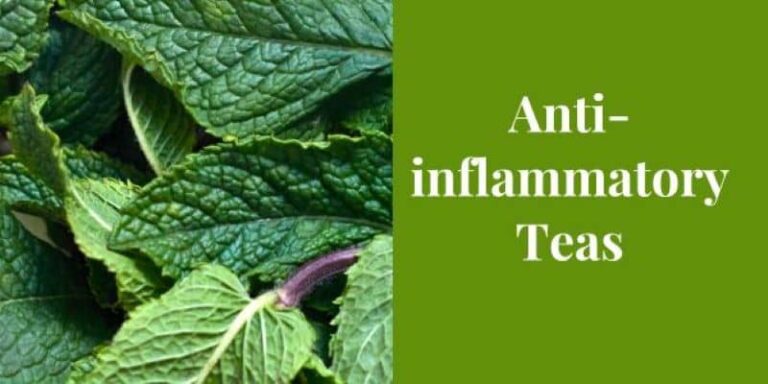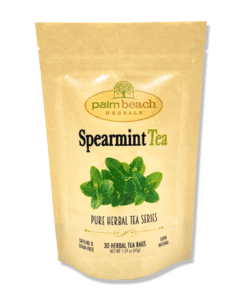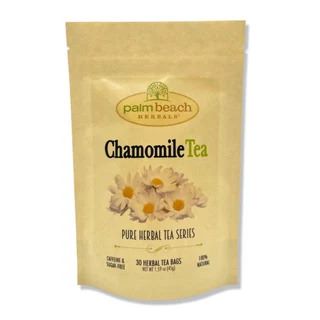7 Powerful Herbal Teas For Inflammation And Pain
Inflammation is your body protecting and healing itself when something tries to harm it. This could be an injury or an infection.
When your body detects the harmful problem, it sends out special signals that tell your immune system protect you. And your immune system will release substances that help fight off the threat and fix any damage.
However, sometimes this process goes wrong and results in inflammation which causes redness, heat, swelling, and pain at the affected area.

Disclosure: This page may contain affiliate links. So, if you purchase a product after clicking a link, I may receive a small commission. There’s no extra cost.
This is when an anti-inflammatory tea may come in handy.
There are many teas for inflammation are available both in your local greocery stores and online. The challenge is to decide which one is right for you.
Best Herbal Teas for Inflammation
So we’re going to look at seven of the best herbal teas for inflammation. Then we will point you to where you can purchase them.
1. Ginger Tea For Arthritis
Ginger tea is possibly the best arithritis herbal tea for arthritis. The active ingredient in ginger is Gingerol. Gingerol is an antioxidant that is known to have powerful anti-inflammatory properties.
Research shows that Gingerol is great for reduicing inflammation of the joints. In addition Ginger is readily available and easy to use. So drinking some ginger tea may be a great way to relieve inflammation causing arthritis pain and sore aching joints
2. Chamomile Tea For Stomach
Chamomile has anti-inflammatory and muscle-relaxing capabilities which makes it the best tea for inflammation of the stomach. Chamomile has been used for thousands of years in Greece, Rome and Egypt to treat stomachproblems and cramps.
Recent studies suggest that tthe antii-inflammatory properties in Chamomile tea makes it a good tea for stomach inflammation that cause various gastrointestinal disorders.
3. Devil’s Claw Tea For Lower Back Pain
Devil’s claw tea is one of the herbal teas for pain that you may not know. Devil’s claw plant is botanically known as Harpagophytum procumbens. It is native to South Afirca. It produces fruits that are covered by hooks that resemble tiny claws, hence the name Devil’s claw.
South African Devil’s claw tea has been used for centuries to treat lower back pain. More recently Lab tests extracted a compound called harpagoside from Devil’s claw root.
This compound has high amounts of anti-inflammatory properties with pain relieving effects. So Devil’s claw tea may be the best pain relief tea for lower back pain.
4. Turmeric Tea For Sore Muscles
What is a good tea for muscle pain? Turmuric tea may be the best anti-inflammatory tea for muscle soreness and body aches. That’s because Curcumin is the dominant compound in Turmeric.

And one study found Curcumin can counteract the two main causes of muscle damage, oxidative stress and inflammation. However, reports state that the body does not absorb Curcumin into the bloodstream quickly and it expels the compound rapidly.
So combining Turmeric curcumin with compounds in ginger or black pepper significantly increase extracting the benefits of Curcurmin making it the best tea for sore muscles.
5. Rooibos Tea For Vasculitis
Commonly known as Rooibos or red bush tea, this herb is renowned for it’s inflammation fighting ability.
Rooibos is native to South Africa. Rooibos tea is made from the stems and leaves of the plant. Red bush tea has been used for more than three hundred years. The herb has many useful polyphenols.
However, the most intriguing one to researchers is Aspalathin. Aspalathin is being studied to determine its potential use for supporting cardiovascular health.
Early resueach indicates that the compound may help reduce inflammation of the blood vessels-Vasculitis-which can damage the heart and other organs.
So, sipping a cup of caffeine free Rooibos tea may help reduce inflammation of arteries and veins while improving your heart health.
6. Spearmint Tea Gut Gut Health
Spearmint is another of those teas for stomach inflammation. Spearmint tea is made from one of the more than twenty species of mint.
S-Carvone is one of the main antioxidants in spearmint. Spearmint is known to have antimicrobial properties which can counteract the effects inflammation in the gut.
This type of inflammation is usually caused by bacteria like the e-Coli bacteria that can wreak havoc on the digestive system. Drinking Spearmint tea can help to improve the health of your gut.
7. Willow Bark Tea For Sciatica
Willow bark tea is one of the best herbal teas to relieve sciatic nerve pain. The reason it the tea contains a chemical called salicin. Salicin is similar to aspirin and has anti-inflammatory and pain-relieving effects.
In addition to sciatica, Willow bark tea can help ease back pain, headaches, menstrual cramps, and fever.
However, it can also have some side effects and interactions, so you should consult your doctor before using it.
Acute vs Chronic Inflammation
Therer are two types of inflammation. There is acute inflammation and chronic inflammation. Acute inflammation is good for the body. Chronic inflammation is bad.
Acute Inflammation
Acute inflammation results from injury to body tissues or joints. With this form of inflammation the of the body is really trying to heal itself.
For example you get a small cut on one of your fingers. The area becomes warm, red, swollen and sore. These are normal signs of acute inflammation.
In a few days you won’t remember the injury because your body healed itself.
Chronic Inflammation
On the other hand, chronic inflammation is a lingering inflammation. The immune system tries to fight off injury by producing massive amount of white blood cells.
Sometimes the white blood cells attack healthy tissue and organs. This results in chronic inflammation.
And several studies confirm that chronic inflammation is linked to serious diseases.Some of those diseases are various cancers, heart disease, arthritis, diabetes, alzheimers, and parkinson.
Conclusion
The teas listed above are among the most widely used herbal teas for inflammation treatment.
However, to get the most benefit from anti-inflammatory teas, you need to know what causes inflammation and how it affects different areas of the body.
Keep in mind that it is important to consult with a qualified health care provider before you begin using any herbal remedy for medicinal purposes.
Disclaimer: This website is for informational purposes only. Nothing on this site is to be viewed as medical advice. Please talk with a professional healthcare provider about matters relating to medical treatment.


